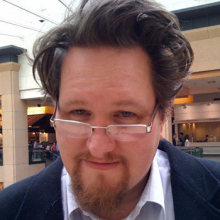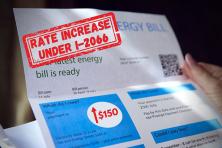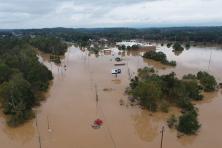Threats to an open Internet are threats to climate progress.
Fossil fuel companies seem to have us stuck in a last-century business model in which their profits come at a huge cost to our natural environment. Similarly, the big cable and telecom companies that control much of our Internet are also stuck with an old, flawed model—and want to impose it on the most precious and most powerful information resource ever created. That will hurt those of us who rely on the Internet to inform ourselves and others about important social, political and environmental issues.
The good news: the FCC has yet to decide the fate of the open Internet. (If you already know all about the importance of net neutrality and are ready to take action to protect it, click here to tell the FCC to protect the open Internet. The rest of you: read on.)
Let's talk about cable TV for a second. Really! This spring, many of us were excited about the climate documentary series Years of Living Dangerously, featuring Matt Damon, Olivia Munn, and of course WA Governor Jay Inslee. But to watch YOLD, you had to have a TV (duh), and subscribe to cable, AND have a package including Showtime, the channel that aired the program. Some systems require you to pay more for premium channels, while others don't offer Showtime at all. If you didn't have the right access, you were SOL regarding YOLD.
Now, that's no complaint against Showtime—that’s how cable TV works. But it’s not how the diverse, free-flowing Internet is designed to work. That's why it's important for us to pay attention to an effort by big telecom firms to exert more control over our Internet experience, making it more like cable—and less of a free-flowing information network.
Websites and services like YouTube, Facebook, Wikipedia, Reddit and ClimateSolutions.org are on the Internet, period—they're not limited to a "Deluxe Package Internet" or a "Comcast Internet." The same goes for all of the news, research and information we need to be informed participants in our democracy. This is the principle called "net neutrality."
However—did you see this coming?—a proposal at the FCC would allow big Internet companies (Comcast, Verizon, Time Warner, etc.) to mess around with the free-flowing nature of the network: defining cable-like service tiers, setting up artificial barriers between consumers and content. The companies want to decide what package of sites and services you should have access to, and at what speed.
You can read more about the bad proposals, and what the FCC should do about it, here. But one bottom line is that an Internet without net neutrality will be great for a few wealthy corporations, giving them more economic power and more control over our media and information channels. That's bad news for the rest of us—especially those of us who are already working to overcome mountains of media disinformation on important issues like climate change. It's also bad news for the next generation of creative entrepreneurs—the programmers and tinkerers to launch the next Facebook, the next Reddit or the next YouTube.
Here's what we can do about it.* The FCC has requested public comments on the question of how it will protect consumers' access to the Internet. What’s at stake is the net neutrality principle—our right to access information and entertainment online without unfair discrimination from the telecom companies.
The FCC should do the right thing to preserve an open Internet for everyone, by classifying the Internet as an equal-access "common carrier," not as a highly-controlled system of private walled gardens, like today’s cable TV. Take action today: Tell the FCC to preserve Internet fairness!
* There are actually very cool ways to protect an open Internet, separate from mucking around with the FCC. We can build and control our own networks—including super-fast, municipally owned fiber networks. These networks will have many benefits, including providing a secure backbone for climate-friendly smart grid systems. We will have more to say about the importance of municipal broadband in the Northwest in another blog post.





